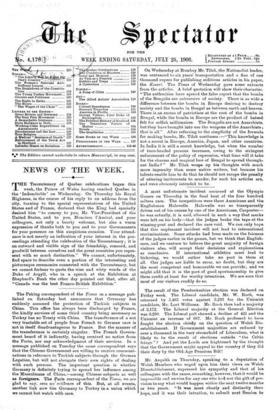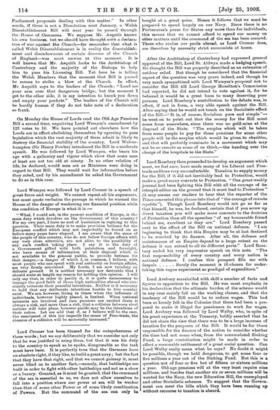Mr. Asquith on Thursday, speaking to a deputation of Welsh
Members who urged upon him their views on Welsh Disestablishment, expressed his sympathy and that of his colleagues with the cause, remarking, however, that it would be impossible and unwise for any one who hHd not the gift of pre- vision to say what would happen within the next twelve months or two years. "It was most clearly and distinctly their hope, and it was their intention, to submit next Session to Parliament proposals dealing with this matter." In other words, if there is not a Dissolution next January, a Welsh Disestablishrnent Bill will next year be passed through the House of. Commons. We suppose Mr. Asquith knows his own business, but we should have thought sueli a declara- tion of war against the Church—for remember that what is called Welsh Disestablishment is in reality the disestablish- ment and disendowment of certain dioceses of the Church of England—was most unwise at this moment. It is well known that Mr. Asquith looks to the Archbishop of Canterbury and the majority of the Bishops to help him to pass his Licensing Bill. Yet here he is telling the Welsh Members that the moment that Bill is passed he means to strike a blow at the Church. In effect, Mr. Asquith says to the leaders of the Church : "Lend me your arm over that dangerous bridge; but the moment I get to the other side, it is my intention to knock you down and empty your pockets." The leaders of the Church will be hardly human if they do not take note of a declaration so frank.







































